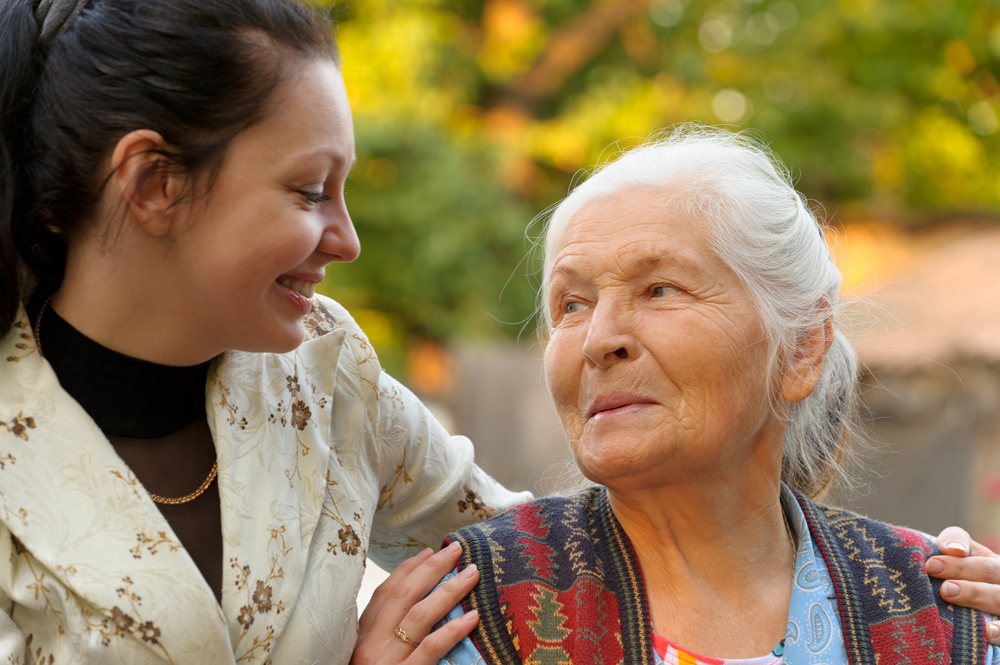Caregiver Resentment: Spouse Caregiver Burnout
Category:

Why Spousal Caregiver Support is Important
“To have and to hold from this day forward, for better or worse, for richer or poorer, in sickness and in health until death do us part.”
When these familiar vows are recited by two people and the promise of tomorrow is before them, the furthest thing from their minds is the “sickness and health” part.
At this time of life, being a caregiver for your spouse seems decades away…a situation only old people must deal with, right?
We are busy living our lives, building careers, buying homes, having kids, nurturing them, college entrance exams, weddings, and grandkids.
We host celebrations attached to these milestones of life, and we fill our hearts with love and memories.
Yes, life flies by, and before you know it, you’re getting correspondence from AARP, and Social Security and your family is planning your 50th wedding anniversary party!
We don’t expect those plans to get derailed by illness.
You may have noticed declining health in yourself or your spouse. Caregiver is a word that has begun to enter your mind as you help each other cope with the struggles aging can create.
How can you make the transition easier if you find yourself in the role of a caregiver spouse? Caring for an elderly spouse can be as natural as the other milestones of life you have faced together. The key to success is to have spousal caregiver support from family, friends, and community resources in your community.
If your spouse has a health condition that requires constant care and you are the primary caregiver, you must remember one thing above all others:
Take Care of Yourself.
- Have a plan. This includes asking for help and staying positive. Remember, your spouse is the same person you fell in love with. Neither of you planned to be where you are now, but a positive attitude helps in every situation.
- Take care of yourself. Take a break when you can, remain in touch with family and friends, get plenty of rest, eat a healthy diet, identify a friend or relative who will listen to your complaints and frustrations without judgement.
- Get medical intervention if it is needed. You may have to use the services of a home health service provider if your spouse requires medical treatment that you can’t administer.
- Ask for help and accept it when offered.
There are times in the life of a caregiving spouse that you find yourself unable to cope despite your dedication, love for your spouse, and doing all the right things. If people ask what they can do to help, let them know what you need. Can they cook a meal or sit with your loved one while you go to the hair salon? Maybe a family member can assist with a financial burden or help you do the things your spouse used to take care of.
Download Our Caregiver Stress Guide
Spouse caregivers of Alzheimer’s patients seem to suffer from caregiver burnout more often than those who are caring for a medically fragile spouse. There are classes you can take and support groups that help you learn about the symptoms and challenges of Alzheimer’s. Sign up for one.
How to Recognize Spouse Caregiver Burnout:
- Inability to sleep.
- Feelings of sadness or depression.
- Isolating yourself from family and friends.
- Strong feelings of resentment toward your spouse.
- Losing interest in things that used to give you pleasure. Not engaging in your hobbies.
- Overusing alcohol or drugs.
- Ignoring your own health.
- Unhealthy eating habits.
- Uncontrollable emotional outbursts such as crying or losing temper.
- Body aches, headaches, nausea
- Extreme anxiety or panic attacks
How to Cope with Caregiver Resentment:
- Make time for Yourself
- Join a Caregiver’s Support Group
- Ask for Help. Friends and Family will usually assist at some level if you ask them.
- Focus on enjoyable things you and your spouse can do together. Watch a movie, go for an ice cream cone, sit outside, watch the birds, or listen to your favorite music.
- Stay organized
- Give yourself a pat on the back. You are awesome!
Caregiver Burnout is real, and it can take a heavy toll on the caregiver. Griswold Home Care can help. If you need assistance with housekeeping, meal preparation, errand running, or someone to sit with your spouse so you can have some free time, Griswold Home Care is a phone call away.
Click here to access the help you need. We understand and are here to help you make your spousal caregiving role work for you and your spouse.
Subscribe
Date: 2022-09-06
Category:


